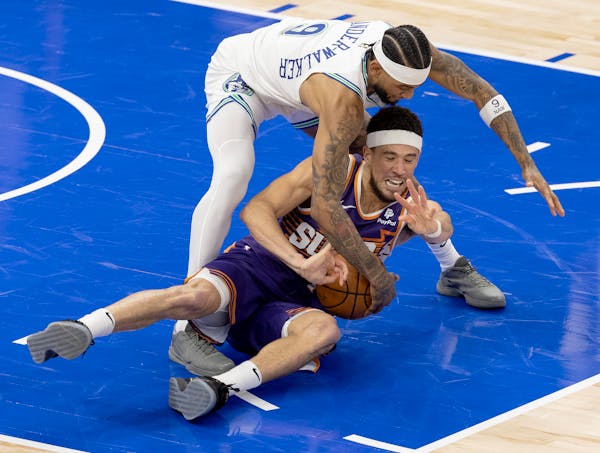Since returning to the minor leagues after his demotion in early August, Aaron Hicks has batted .417. Well, from the right side anyway.
Unfortunately, he's only had 12 at-bats from that side because in Triple-A, like in the majors, the vast majority of pitchers are right-handers. And righties force the switch-hitting center fielder to the opposite batter's box, where he has posted a miserable .287 OPS in Rochester. Yuck.
Overall, between the majors and minors this year, Hicks has hit a respectable .239/.313/.451 as a righty and a dreadful .172/.240/.275 as a lefty. That's a difference of 250 points in OPS, and the stats are backed up by observational evidence. Hicks is natural right-handed hitter who took up switch-hitting in high school, and his swing is clearly far more smooth and strong from the right. Yet, the composition of pitchers in the league has him swinging from his far weaker side more than 75 percent of the time.
This year has been such an utter disaster for Hicks that the Twins need to consider shaking things up to get him back on track. Eliminating his switch-hitting approach would be drastic and would essentially call for reinventing him as a hitter, but the need to do so is becoming increasingly apparent.
Last year, at Double-A, Hicks acquitted himself quite well from the left side, hitting .287/.393/.434 for an .828 OPS that was nearly on par with his outstanding .881 mark from the right. But in previous years the outfielder has consistently struggled to inflict damage against right-handed pitchers, leading to his drop-off on prospect lists (Hicks went from being ranked the No. 19 prospect by Baseball America in 2010 to No. 72 this spring).
In 2011, at Ft. Myers, Hicks batted .230 and slugged .356 from the left side, as opposed to .263 and .401 from the right. In 2010, at Beloit, he hit .248 and slugged .339 from the left while crushing to the tune of .362 and .664 from the right. His inability to hit with authority against righties certainly helps explain the slide in prospect status over the past three years, and was extremely evident during an ugly rookie season in the majors.
Ostensibly, batting lefty against right-handed pitchers is beneficial for Hicks, providing him with a better look at incoming pitches. But his inferior swing from that side seemingly negates any gained advantages. It's really difficult to imagine him performing worse against righties while swinging out of the right-handed batter's box. How much worse can it get?
The list of players who have given up switch-hitting this deep into their careers is rather short. The Orioles talked about doing it with 28-year-old former Twin Alexi Casilla earlier this season, but it never happened. Implementing such a dramatic change for a player who has been playing the game a certain way professionally for six years is an imposing proposition, and perhaps the adjustment would be too daunting for the Twins to even attempt, but it is frustrating seeing Hicks' offensive game so limited by being forced to take the vast majority of his at-bats from an unnatural and inferior stance.
In heated western Minn. GOP congressional primary, outsiders challenging incumbent

Minnesota Sports Hall of Fame: A class-by-class list of all members

This retired journalist changed professional wrestling from Mankato

